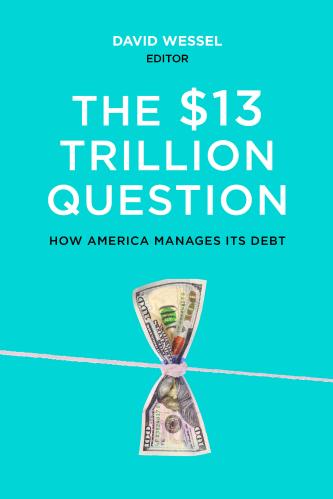This post originally appeared on WSJ Pro on August 8, 2017.
It was 10 years ago, on Aug. 9, 2007, that France’s BNP Paribas suspended withdrawals from three funds that held U.S. mortgages, a move seen in hindsight as the first tremor of the global financial crisis that shook the world economy.
So this seems a good moment to ask if we are ready for the next financial crisis. The short answer is: No.
There is, however, a longer answer. I’m persuaded that the system is more resilient than it was, thanks to all the postcrisis reforms and regulations. For example, the banking system has more capital and liquidity than it did before the crisis, which means banks can absorb bigger losses without collapsing. The risks of another crisis as big and extended as the last one are lower—provided postcrisis reforms aren’t dismantled or diluted by Trump-appointed regulators or Congress.
But here are four (of the many) things to worry about that raise questions about the government’s ability to limit the effects of any crisis that nonetheless occurs:
- Dodd-Frank created a way to “resolve” (that is, wipe out the shareholders, convert some debt to equity and sell off the pieces) of any future Bear Stearns, Lehman Brothers or AIG so that the Federal Reserve and other agencies don’t have to improvise the way it did in 2008 and we don’t suffer the aftershocks of a Lehman-style bankruptcy. This “orderly liquidation authority” is under assault from Republicans in Congress. My bet is that it will survive, but we really won’t know how well this new mechanism works until it has been tested.
- Responding to widespread anger at “bailouts,” Congress limited some of the powers that the Fed and the Federal Deposit Insurance Corp. used last time to provide liquidity to the system. It made it harder for the Fed to lend to a single nonbank institution that is in trouble or even to provide widely available lending to nonbanks. And it will be harder for the FDIC to guarantee financial institutions’ debt. We won’t know if this was a mistake until the next crisis hits.
- The politics of responding to an economy-shaking financial crisis are never easy: What’s needed to protect the economy from another Great Depression will never be popular politically because it looks like bailing out the very folks who created the problem in the first place. Perhaps the next time a financial crisis hits, the first responders will be better at explaining what they’re doing and why. But perhaps they’ll look back at the political price paid by those who ran a mostly successful rescue (see Europe for a counterexample), and they’ll do too little too late.
- While a lot of work has been done in the U.S., the U.K. and the eurozone to cope with collapsing systemically important financial institutions inside their borders, there is still a lot of uncertainty about what will happen with the collapse of a financial institution that sprawls across borders, as many of the big ones do.
The Brookings Institution is committed to quality, independence, and impact.
We are supported by a diverse array of funders. In line with our values and policies, each Brookings publication represents the sole views of its author(s).









Commentary
A decade after the crisis’ first tremor, are we ready for another?
August 9, 2017